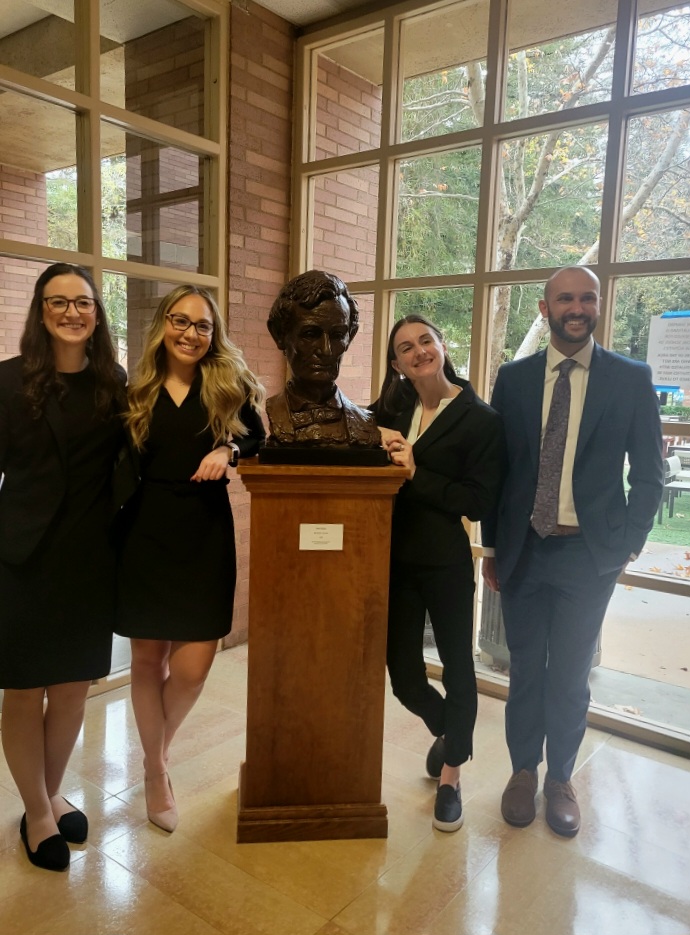Moot Court Team Reaches Quarterfinals in Los Angeles
Marquette’s Labor and Employment Law Moot Court team wasn’t the only Marquette moot court to reach quarterfinals in a competition in March.
Team members Annie Gonring and Ron Tenuta successfully argued their way into quarterfinals at the UCLA Williams Institute National Moot Court Competition. Their quarterfinal round ended up being a re-match of one of their preliminaries rounds, against a competitive team.
Although Gonring and Tenuta did not advance to the semifinals, they did achieve high oral argument scores from the judges, with Gonring, in particular, named by several judges as an outstanding oralist. Their brief also tied for third place in the competition.
Madeline Lewis and Aimeé Treviño—Marquette’s other team—did not advance past the preliminary round, but they put in strong performances, with Trevino named by one judge as the best advocate in her round.
This marked Marquette’s first time in this competition and our two teams showed that Marquette was a presence to contend with.
The team was advised by Professor Lisa Mazzie, and coached by Attorneys Alexa Bradley (L’18), Bryn Baker (L’18), and Courtney Roelandts (L’18).


 If you’re like the rest of the United States, then you are aware of the recent attempts to restrict the right to abortion pre-viability — a right affirmed by the Supreme Court in Planned Parenthood v Casey., 505 U.S. 833. Despite the holding in Planned Parenthood, States continue to pass legislation restricting abortion. In some States, these attempts are no more than a brazen attempt to ban nontherapeutic pre-viability abortions.
If you’re like the rest of the United States, then you are aware of the recent attempts to restrict the right to abortion pre-viability — a right affirmed by the Supreme Court in Planned Parenthood v Casey., 505 U.S. 833. Despite the holding in Planned Parenthood, States continue to pass legislation restricting abortion. In some States, these attempts are no more than a brazen attempt to ban nontherapeutic pre-viability abortions. Last year, I watched as a law student was introduced to a lawyer volunteering at the legal clinic. The lawyer was a white man in his 60s. The student was a woman of color in her 20s, and she was wearing hijab. I happen to know that both people have hearts of gold and come to the legal clinic with a desire to help and to give their time and talents selflessly.
Last year, I watched as a law student was introduced to a lawyer volunteering at the legal clinic. The lawyer was a white man in his 60s. The student was a woman of color in her 20s, and she was wearing hijab. I happen to know that both people have hearts of gold and come to the legal clinic with a desire to help and to give their time and talents selflessly.